At the end of September I went to visit my local food forest in Rodmell, East Sussex, UK to do some field research as part of the studio’s Food Forest Flavours x Minimum Viable Protein (FFF x MVP) project.
The project explores harmonising the rhythms, flavours, and culinary possibilities of two complimentary but differently optimised farming typologies. 1 – Alternative proteins (MVPs) – systems that take a full technology-based approach to food production (think Plant-based meatballs, lab-grown burgers) and 2 – Food forest flavours (FFFs) – the seasonal flavours of agroforestry projects that take years to establish and emphasise biodiversity, resilience and regeneration – (think fruits, leafy greens and wild herbs.)
I found Rodmell Food Forest to be a layered woodland habitat of tree canopies (like apple), bushes and shrubbery (like berry and rose) intertwined with beds of leafy greens, root vegetables and medicinal herbs and spices covering around 1 Acre. The layering and companion planting is key to creating the sustainable, self-regenerating cycle that mimics the forest ecosystem.
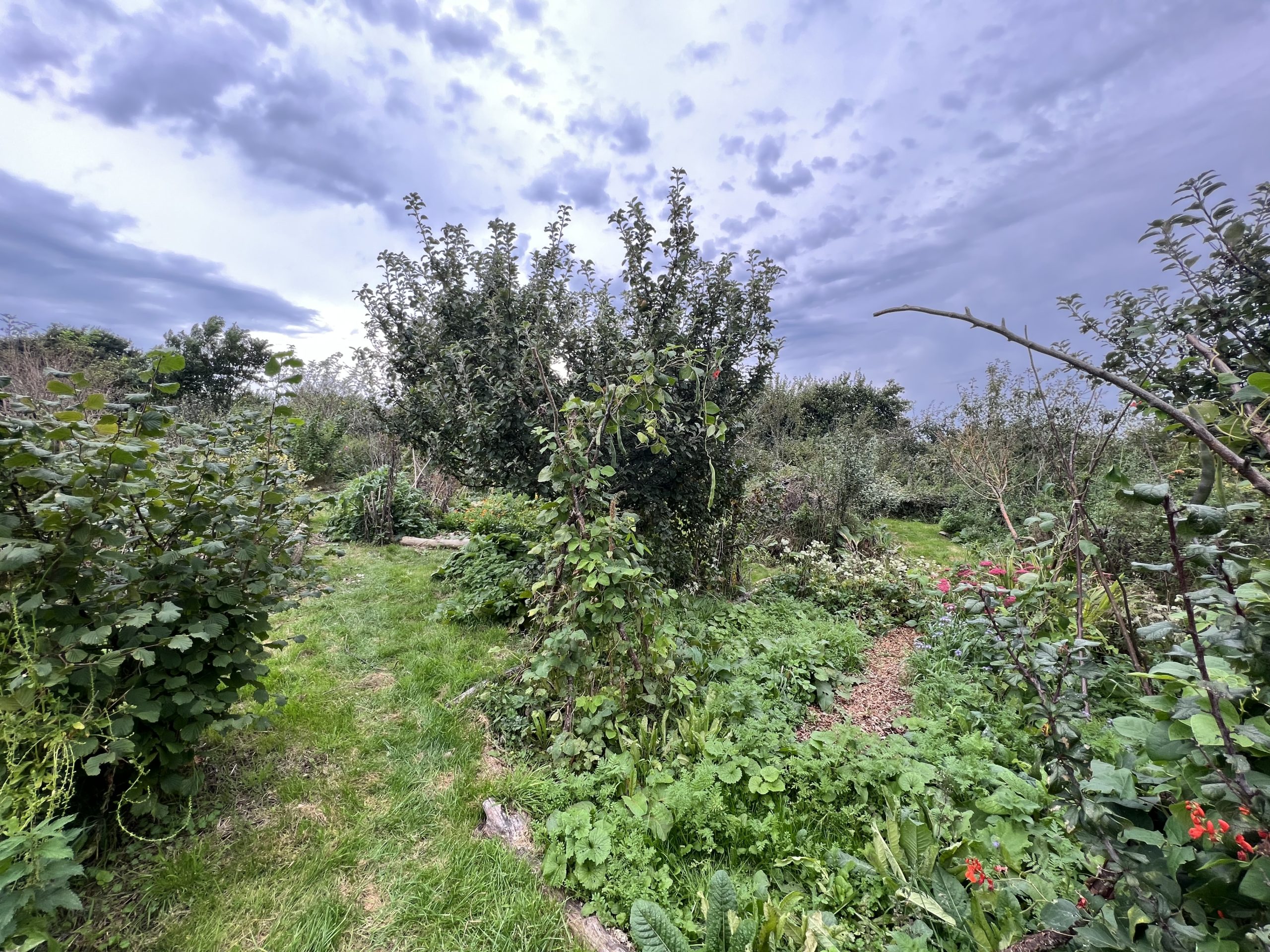
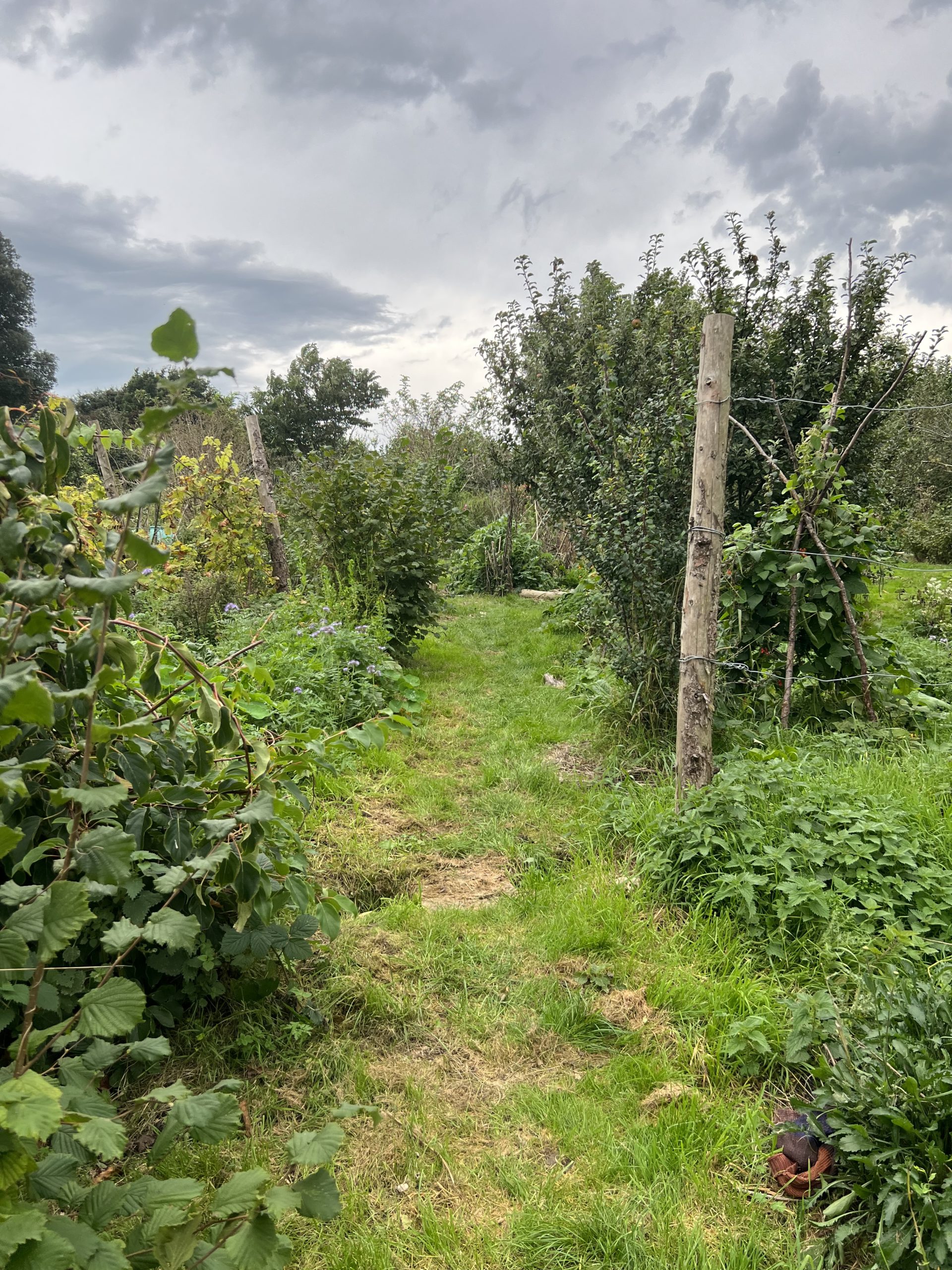
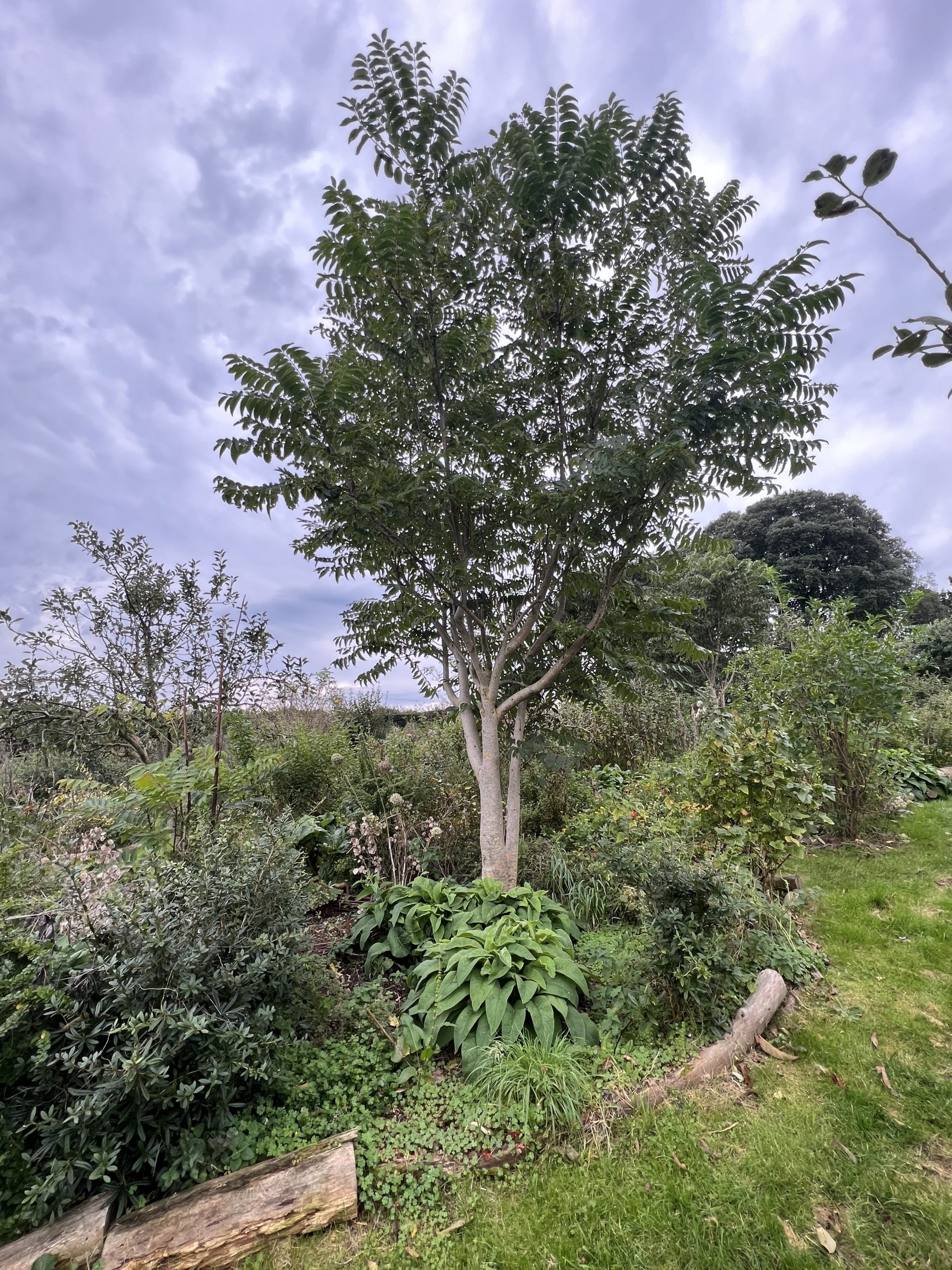
I met the head gardener pottering around the greenhouses who told me it had been growing for about 10 years. Growing entirely edible and medicinal plants all year round it is open to visitors every Wednesday who are free to explore, and procure the seasonal foods. Although it was late afternoon when I arrived, cars still seemed to be parking up to come and pick specific foods as though it was a local norm and they knew where in the garden to find it. Much the same as knowing which supermarket aisle to find your tuna – !
1: Procurement and recipe:
As Food forests create very different flavours throughout the year and across their lifetimes I was keen to capture a snapshot of the Rodmell Food forest flavours on the day of my visit from which to cook a condiment that would complement a minimum viable protein dish.
I was looking to procure foods for a ketchup made entirely from ingredients I found with a focus on substitution leading to flavour experimentation – using the forest foods to guide the recipe.
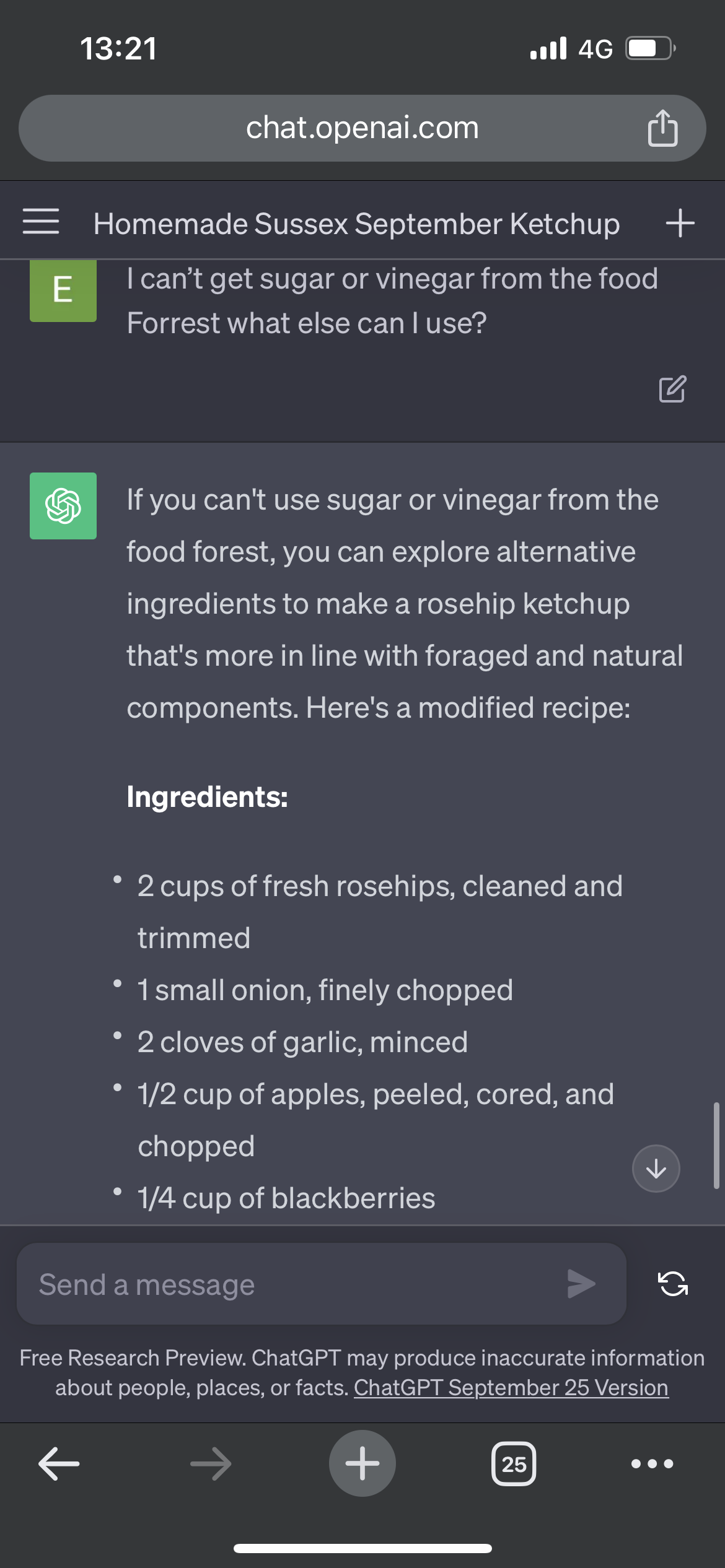
Before the visit I wondered what advice artificial intelligence would have for pairing flavour compounds between MVP’s and Forest foods, so I asked chat GPT for a ketchup recipe made from food forest foods in Sussex in September – this is what it gave me.
I wanted to see if I could gather those ingredients and if not – what substitutes I could find. Instead of vinegar, I found Rhubarb for the tart taste. Instead of tomatoes, I used rose hip. Instead of sugar, I found some sweet aniseed herbs called Sweet cicely, and lovage. Instead of garlic and onion (there were none left) I found celeriac for a peppery/sweet body of taste.


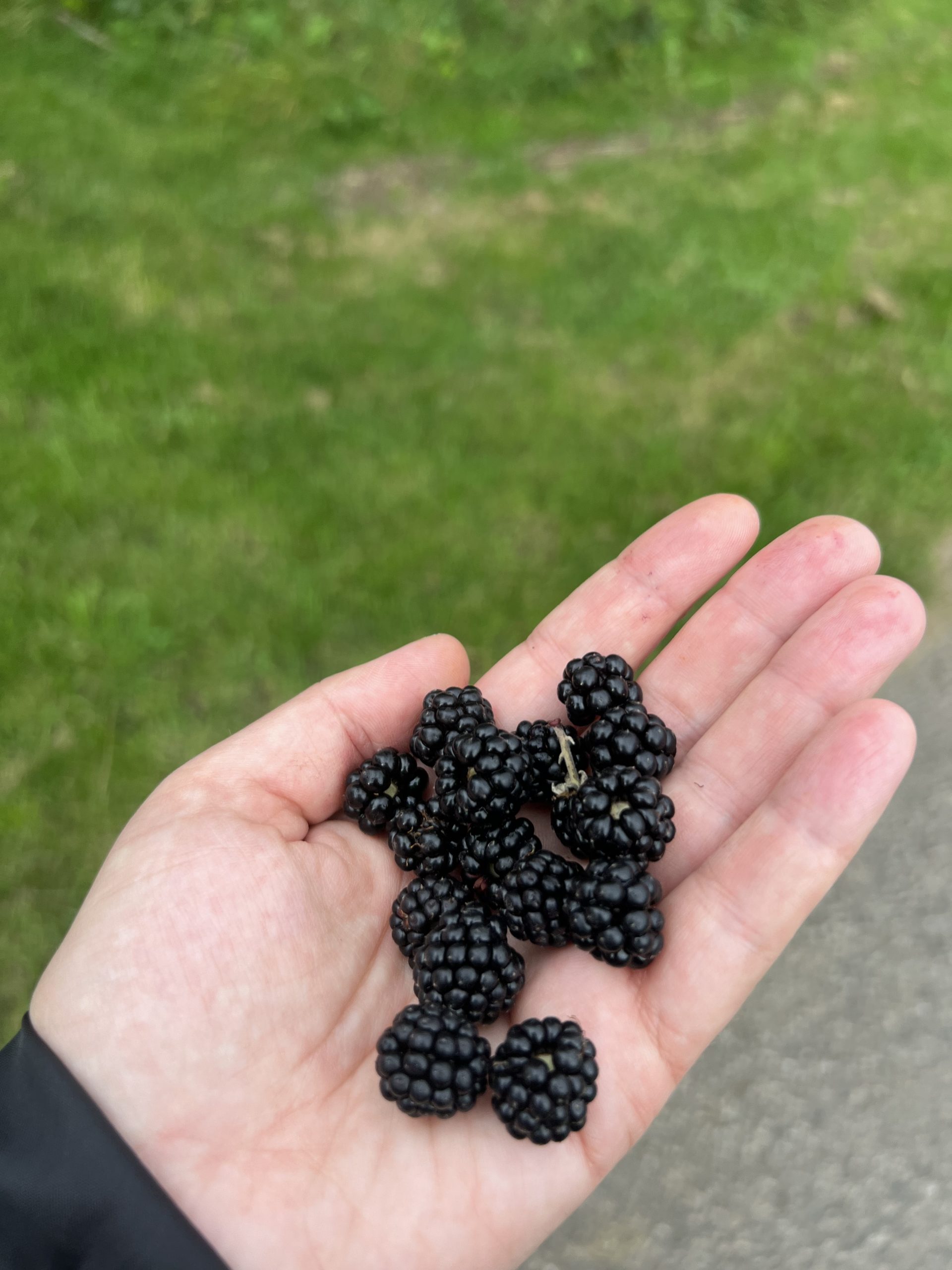
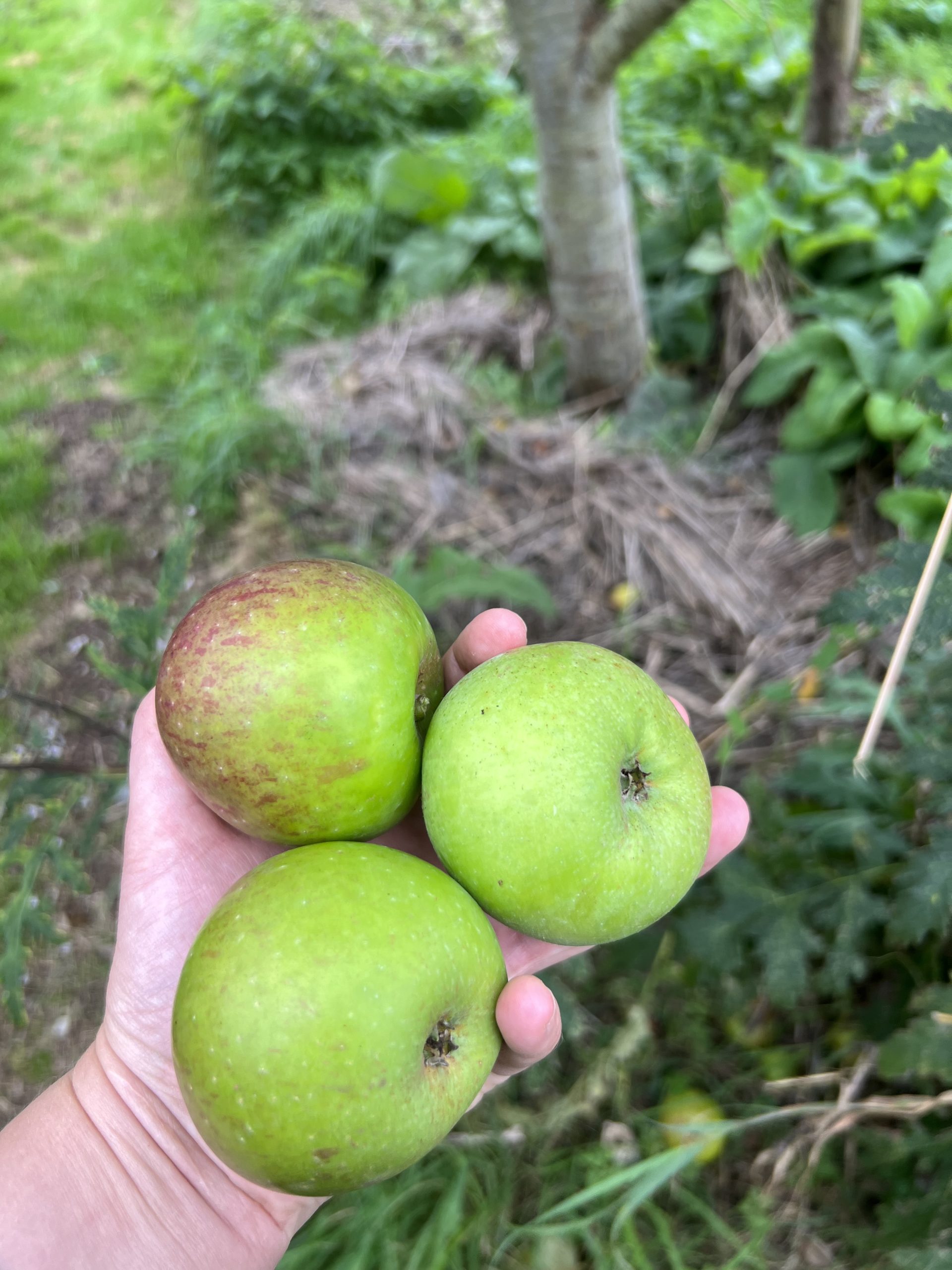
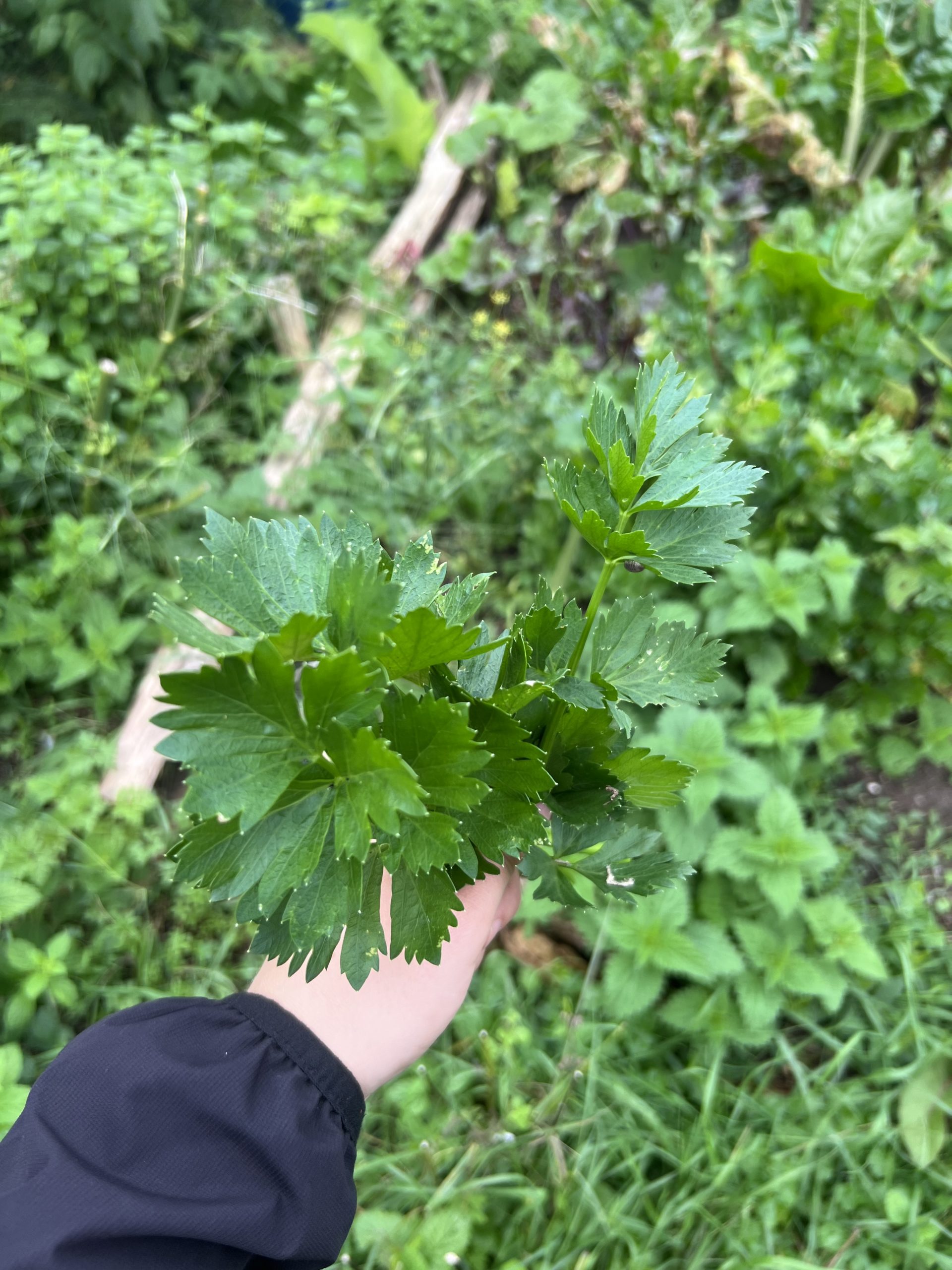

2: The Cook
To cook the Ketchup, I used the recipe that Chat GPT had given me as guidance.
I wanted to understand what kind of condiment ketchup would become if the traditional vinegar and sugar were absent and substituted with herbs and fruits of the forest, so I cooked up 2 batches to compare. 1 – using only the ingredients picked from the Rodmell that day, 2 – including shop-bought honey and vinegar – which is more in line with the traditional recipe and taste of ketchup.
Ingredients:

- 1 x cup rosehips
- 1 x apple
- ½ cup blackberries
- 1 tablespoon oregano marjoram
- ½ cup Sweet Cicely
- ¼ cup Lovage
- ½ cup celeriac leaves
- ½ cup of water
- ¼ cup vinegar
- 4cl honey
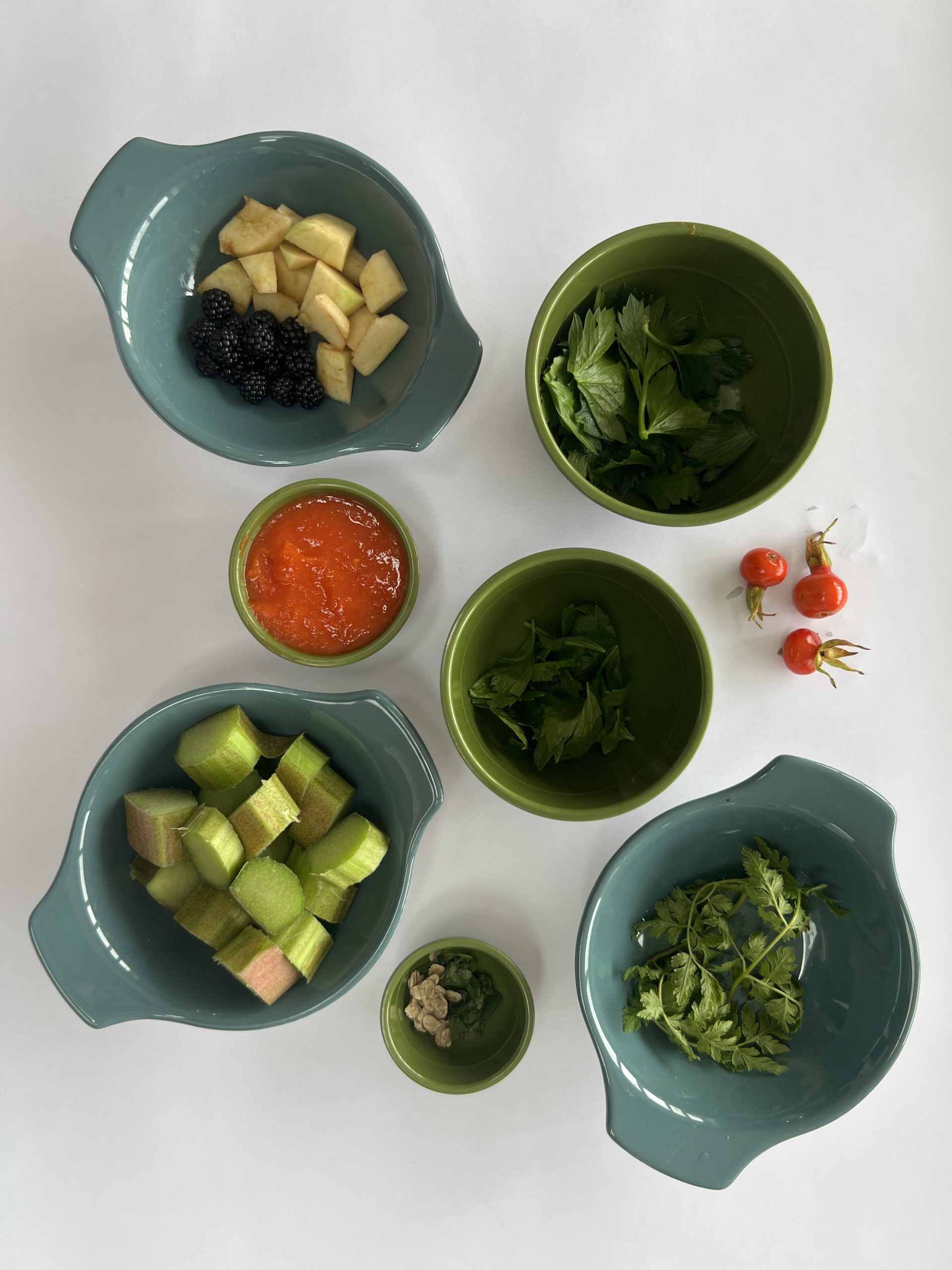
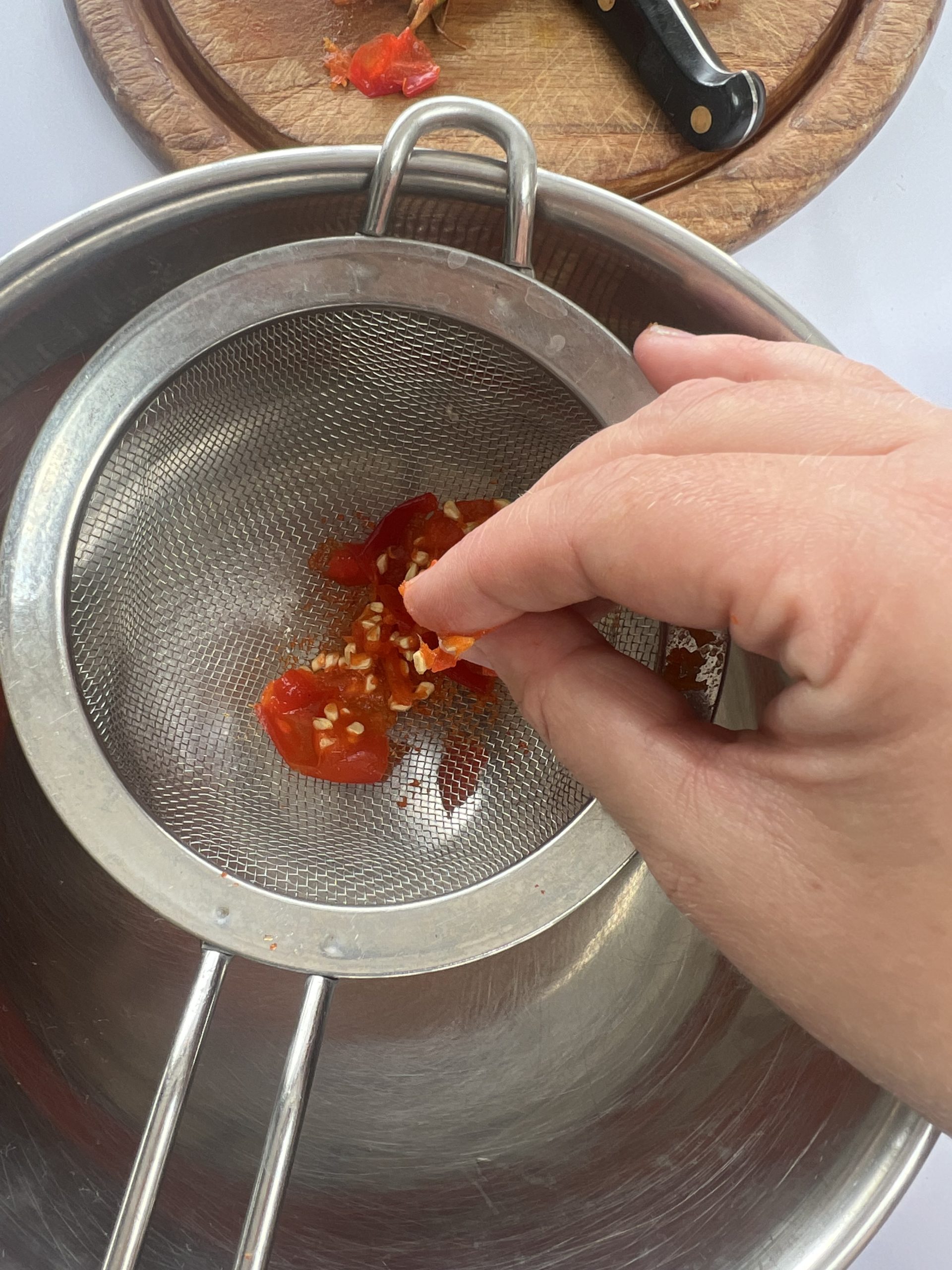
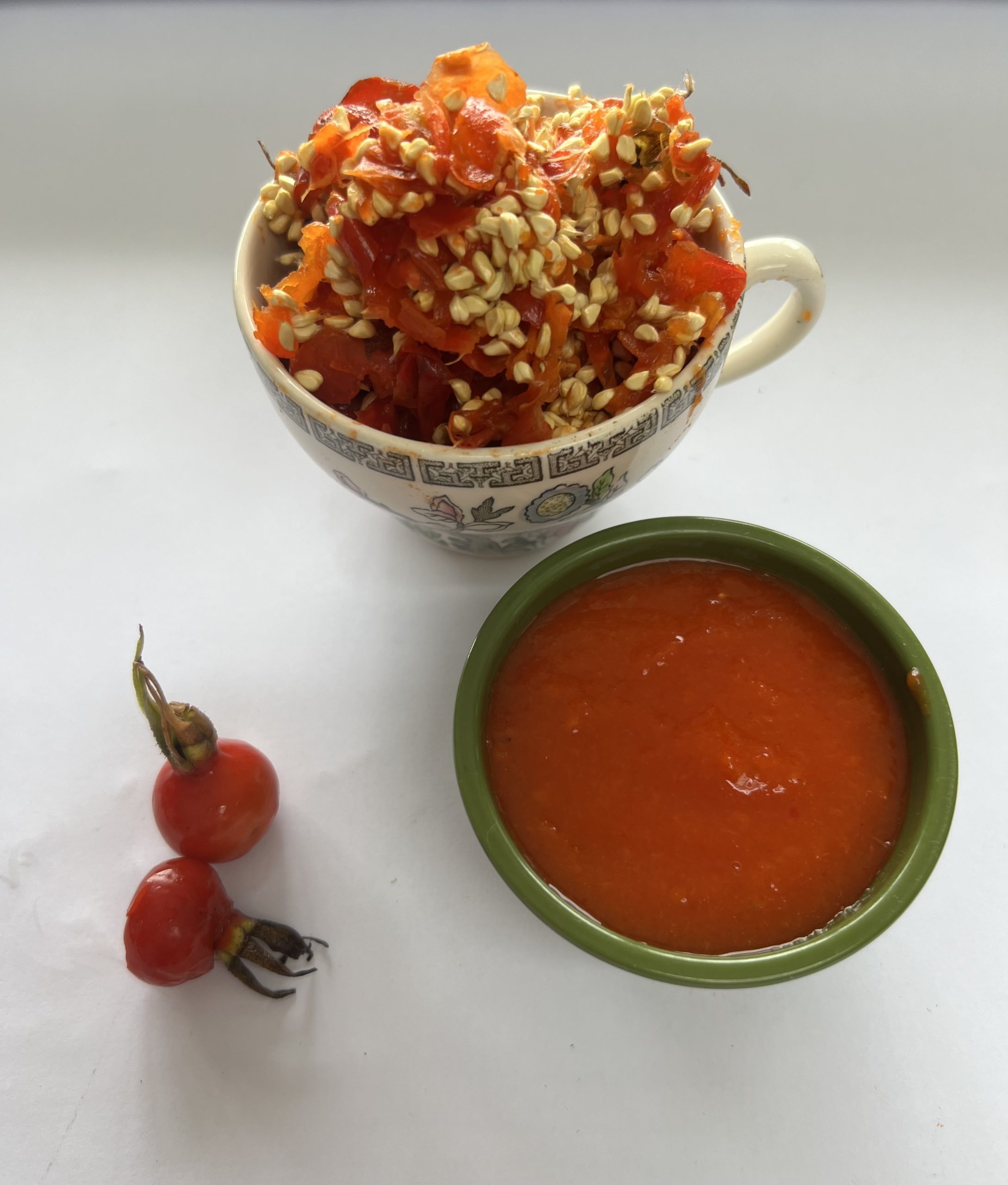


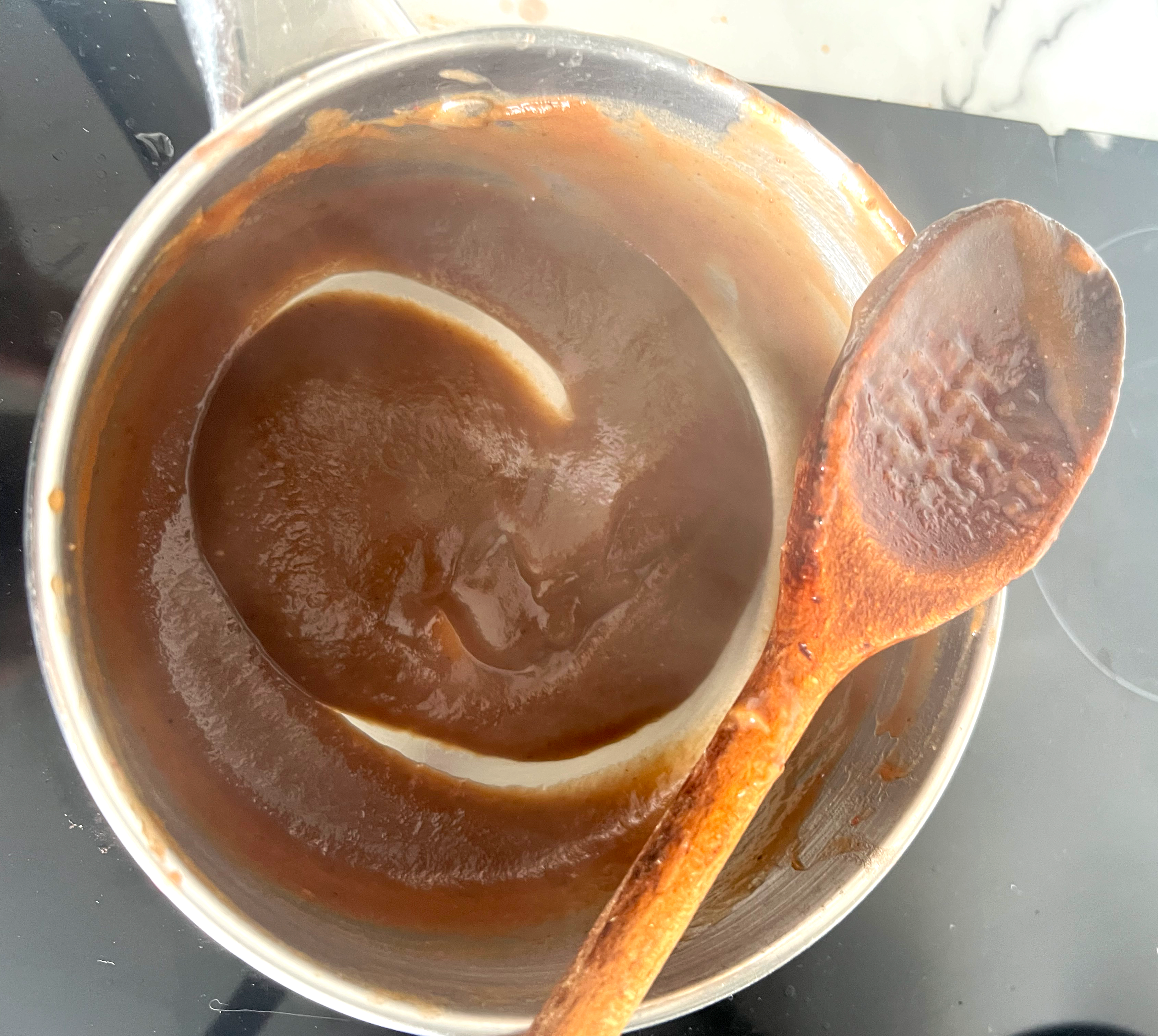
The outcome:
The result was a complex, layered condiment with all the flavours of forest fruits and herbs. The fruitiness gave it a nod to pickled chutneys and jams or Umeboshi pickled plums, yet batch 2 also had the distinct acidic sweet flavour of ketchup.
Overall I would say batch 2 (adding vinegar and honey) was more successful in stepping in for a traditional ketchup condiment with the acidic punchyness that cuts through oily meats and MVPs. Batch 1 on the other hand – although still tart due to the rhubarb, had a more fruity puree-like flavour.
Both would be very at home on an MVP Charcuterie board bringing a complimentary forest tang to the earthy, fatty flavours of cultured meats, mushrooms and fermented soy and bean products.
